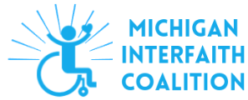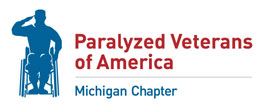New report details devastating impact of Michigan’s catastrophic care crisis on survivors, their families, and providers
The following press release was provided by the Michigan Brain Injury Provider Council regarding the release of MPHI’s report on No-Fault Reform provider impact through October 20, 2021. Tom Judd, President of MBICP, says the “legislature must pass ‘common sense’ amendment to protect accident victims.”
BRIGHTON, Mich. – (Jan. 11, 2021) — Following the release of a new study tracking the destabilizing long-term impacts of Michigan’s 2019 auto insurance law, Michigan Brain Injury Provider Council president Tom Judd today called for a “common sense” amendment to the 45% cut in catastrophic care that has led to Michigan’s ongoing catastrophic care crisis.The independent study, which was conducted by nonprofit public health institute MPHI, found that:
• 1,548 auto crash survivors have been discharged
• 3,049 jobs have been eliminated
• 96 companies are now unable to accept referrals with auto insurance funding
• 21 companies have completely closed down operations
• 140 companies have significantly reduced their services and/or products“Prior to the implementation of the draconian and irresponsible reimbursement scheme set forth in the 2019 no-fault auto insurance reforms, which arbitrarily slashed rates of essential rehabilitation services and care for auto crash survivors by nearly half, Senate Majority Leader Mike Shirkey dug in his heels and insisted lawmakers needed to see ‘data’ before making any changes,” Judd said. “Despite warnings that waiting for the data they were looking for meant the prolonged suffering of severely injured accident survivors and the loss of care-provider jobs throughout the state, the Republican-led legislature declined to take up a number of bills that could have prevented the catastrophic care crisis, which is now well underway, without changing any other aspect of insurance reform – including consumer cost savings.”
Judd said that while some companies reported that they were not impacted in the first four months of the fee cap system, nearly 90% of the 273 respondents said they would be unable to serve auto crash survivors within the next 12 months (including the 184 companies that have already been impacted).
The MPHI report’s findings echoed the conclusions of another nonpartisan and unbiased institution. The University of Michigan Poverty Solutions Center’s December 2021 Building on Michigan’s Auto Insurance Reform Law analysis found that “the method used to cap medical fees may be unnecessarily stringent and out of line with national peers, causing a crisis in access to care for victims of catastrophic accidents.”
“The Republican-led legislature has not listened to its constituents or the qualified, ethical providers whose mission is to serve Michigan’s auto crash survivors,” Judd said. “Lawmakers have consistently disregarded pleas for common-sense amendments to the fee schedule so that the crisis in care can end and people can get back to receiving the rehabilitation services and care they need and deserve. Hopefully, Majority Leader Shirkey and his colleagues don’t ignore the data they have been looking for from reputable third-party sources like MPHI and University of Michigan.”
The MPHI report indicated that two future surveys are scheduled to track ongoing impacts of the reimbursement cap system. Judd said he hoped these surveys are not necessary.
“Further data should not be needed to support the hundreds of news stories across the state that have told the personal stories behind this unfolding tragedy,” Judd noted. “The time for action is well past us. Michigan’s crash survivors, their families, and their care providers deserve immediate action. House Speaker Jason Wentworth, Senate Majority Leader Mike Shirkey, and the Republican-led legislature must act to end Michigan’s catastrophic care crisis now. “
See more press releases at the MBIPC Newsroom.




